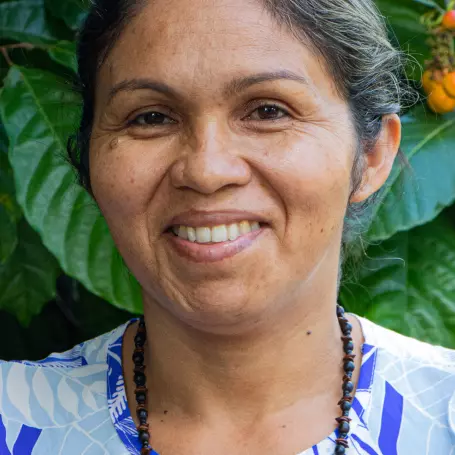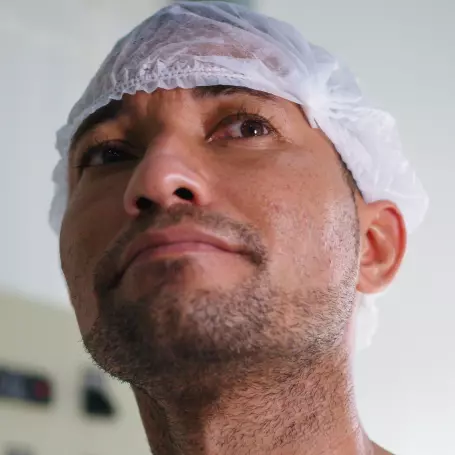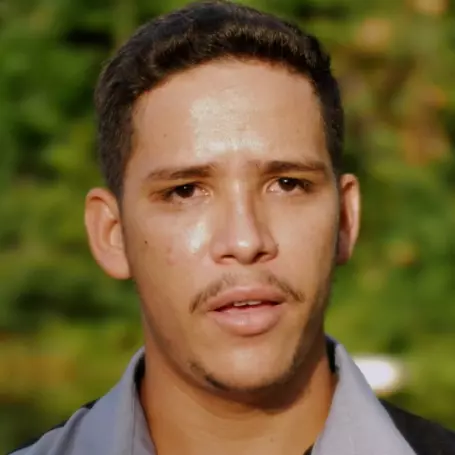why Bioeconomy?
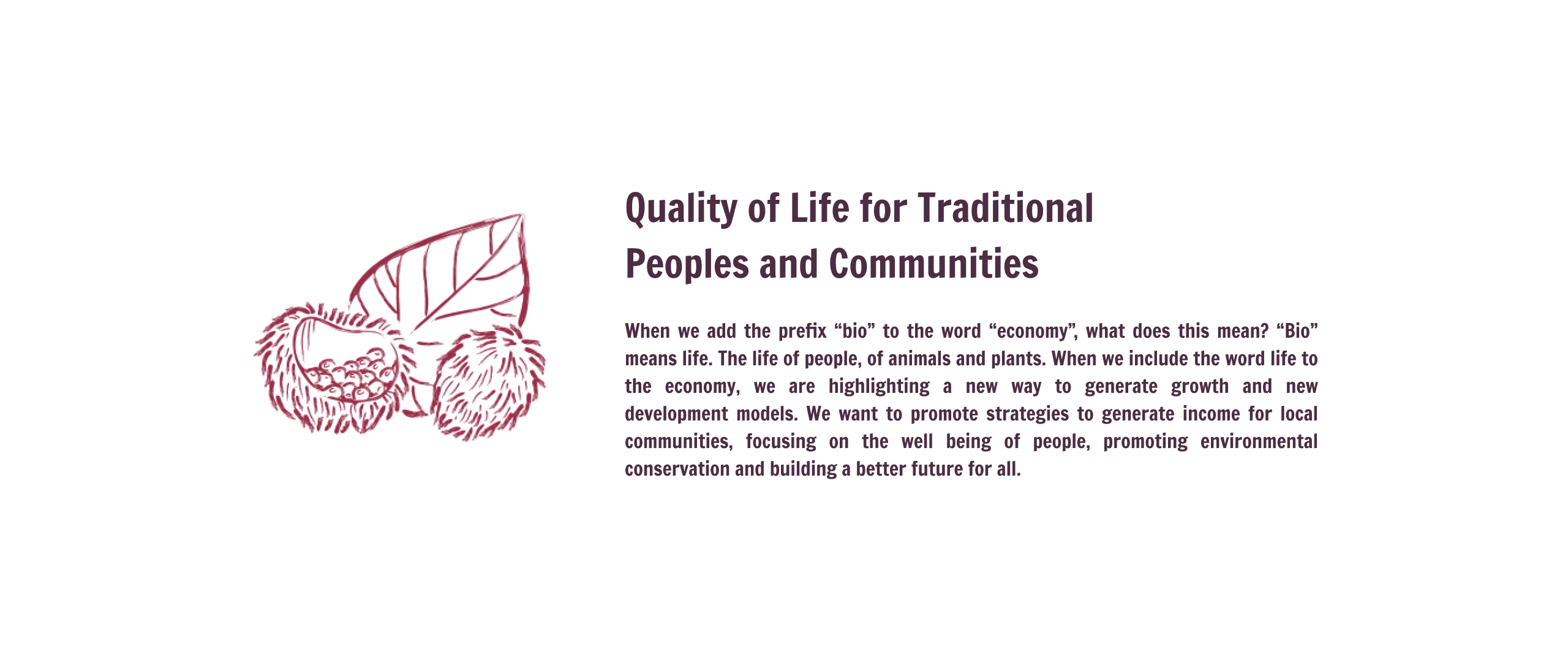
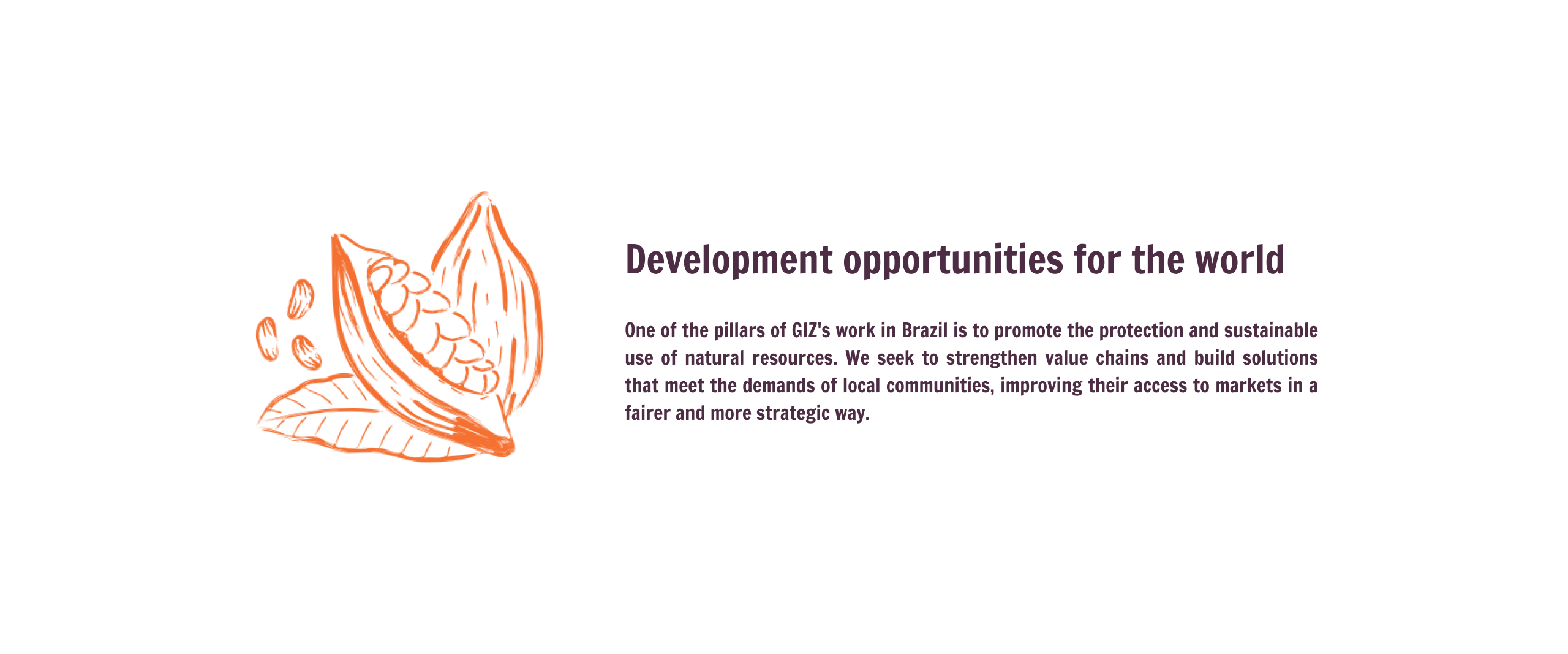
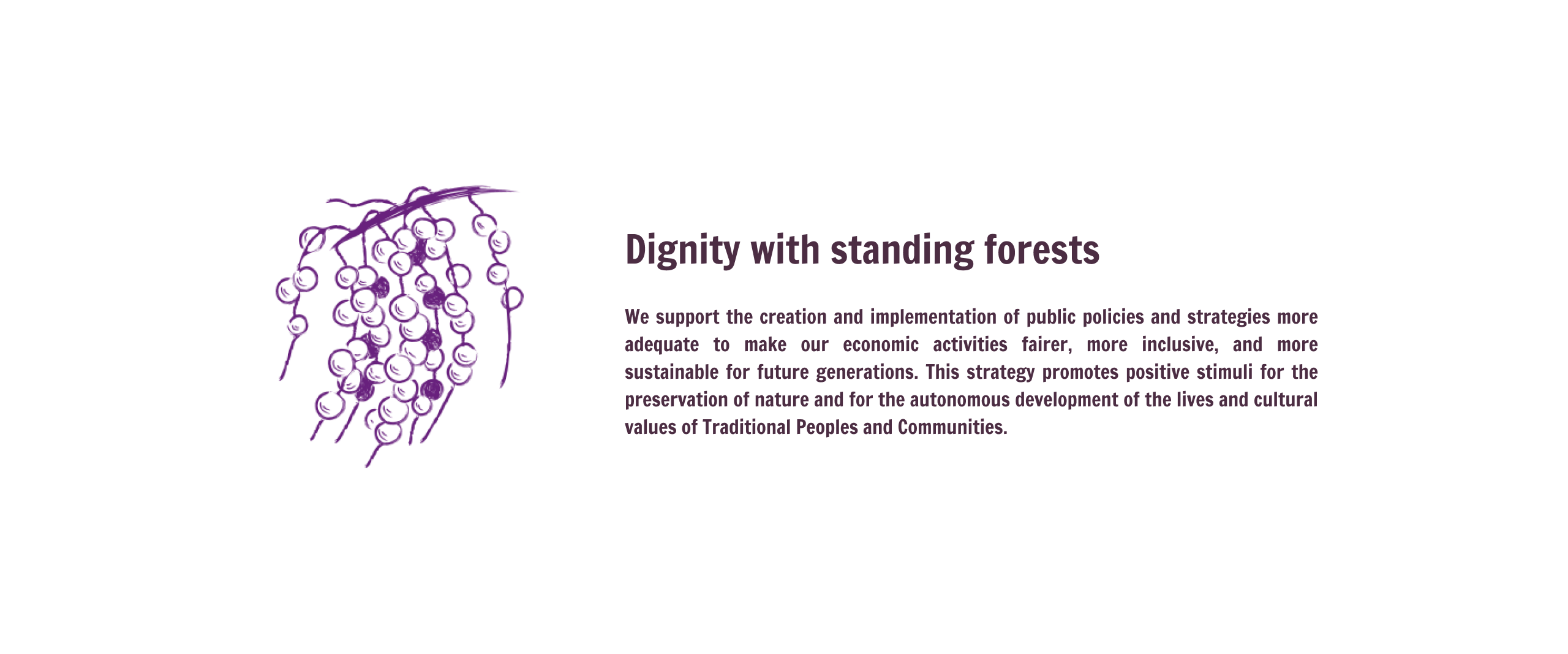
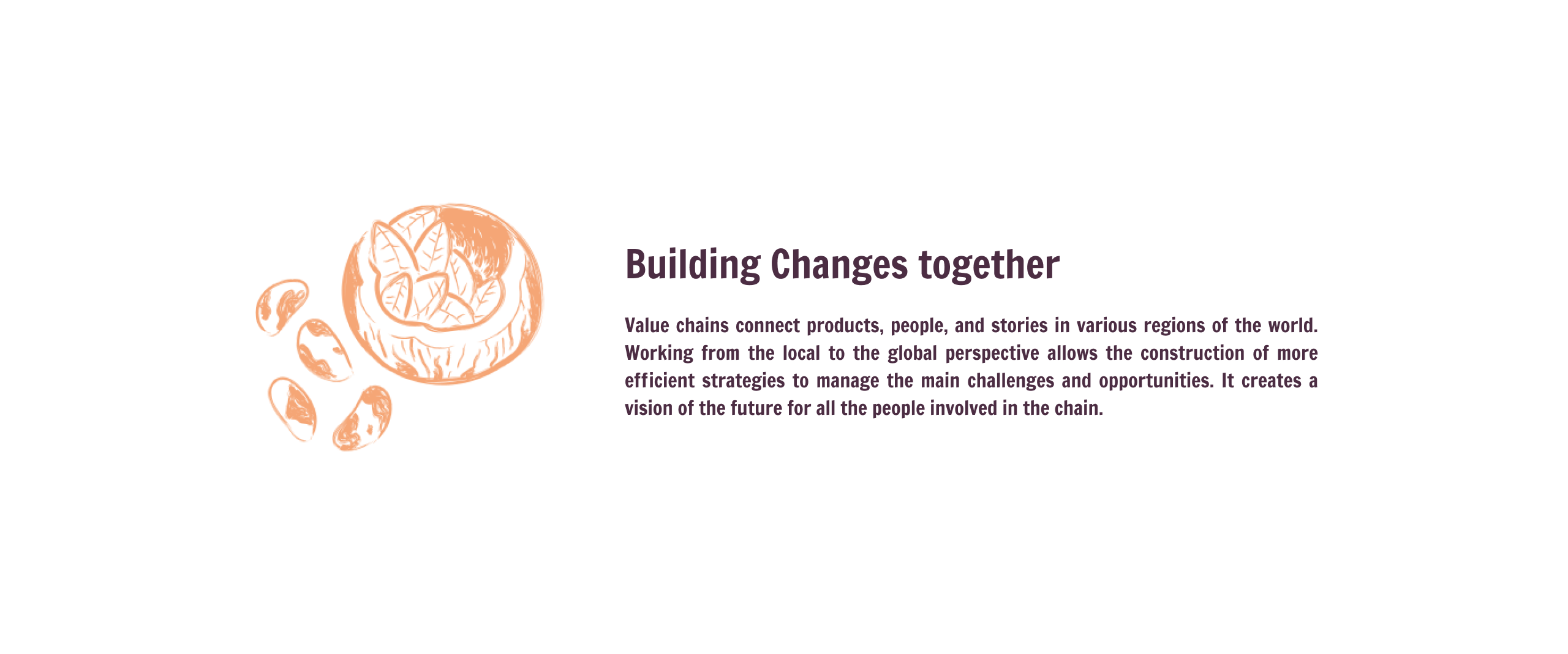
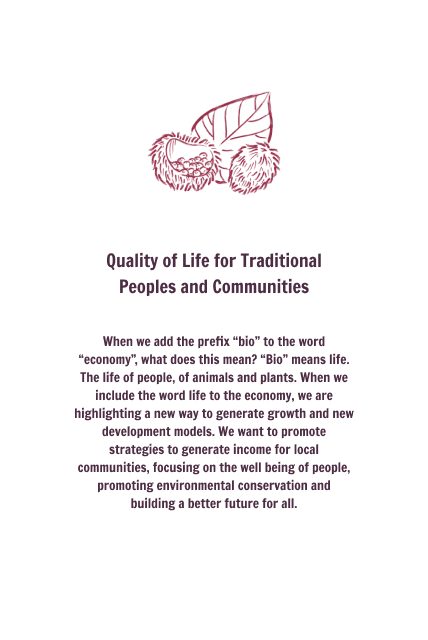
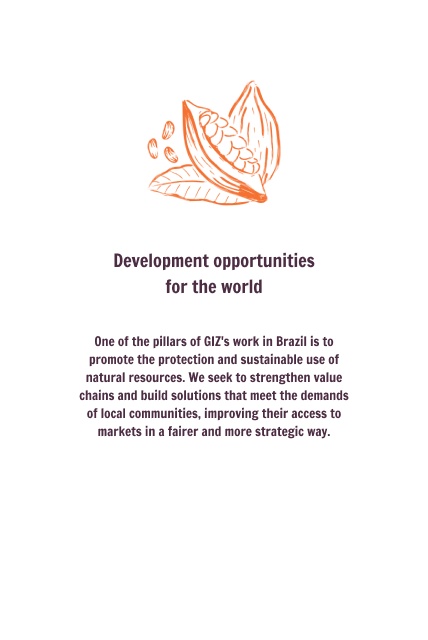
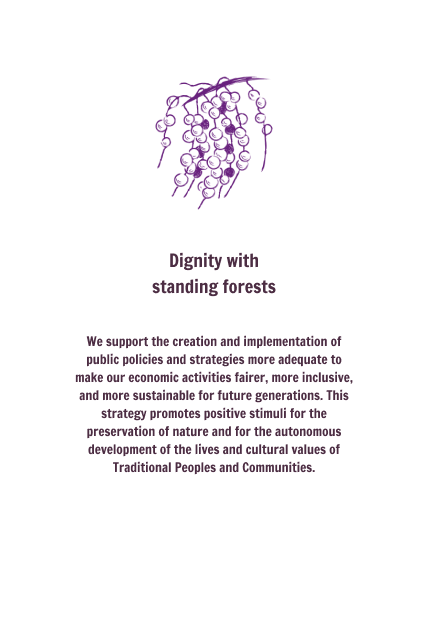
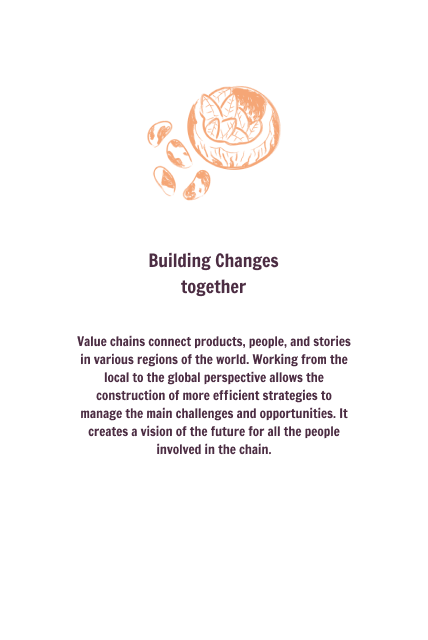
Who makes the bioeconomy happen
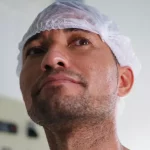
Amiraldo Picanço
Today in the heart of the Amazon we have a project called Amazonbai, showing that it is possible to promote economic development in the Amazon, without degrading the environment, without deforesting our forests and mainly respecting the way of life of each family of the traditional communities.
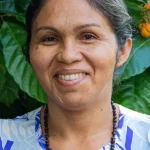
Ednamar de Oliveira Vianna
Our ancestors cultiveted guaraná and this has been passed from generation to generation. We are doing this work, protecting our territory, and today we see the appreciation that guaraná is gaining. This encourages us to continue our work, allows us to support our families, have access to education and health, improving our quality of life in our own communities.
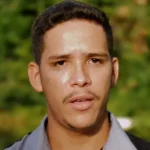
Gicarlo de Lima
Since I was little I saw my father doing the process of agro-extractivism in the forest. I accompanied him, learning along with him. And now I'm part of Reca. Now is the time for the youth to get to know the processes and get involved, and with this continue the history of the Reca cooperative
Illustrations: Bianca Rondon
when we talk about the bioeconomy
Outlining a concept
Bioeconomy is a concept that is expanding and becoming more popular. In its different definitions, it generally addresses a vision of an economy based on the sustainable use of socio-biodiversity - meaning the connection between biological diversity and the practice of sustainable activities - involving transformative and innovative processes that aim at market access, generating income and improving the quality of life locally and globally.
Bioeconomy becomes a way to reaffirm sustainability as the core of actions that promote development and technological solutions both based on science and on traditional knowledge.
For further information on the subject:
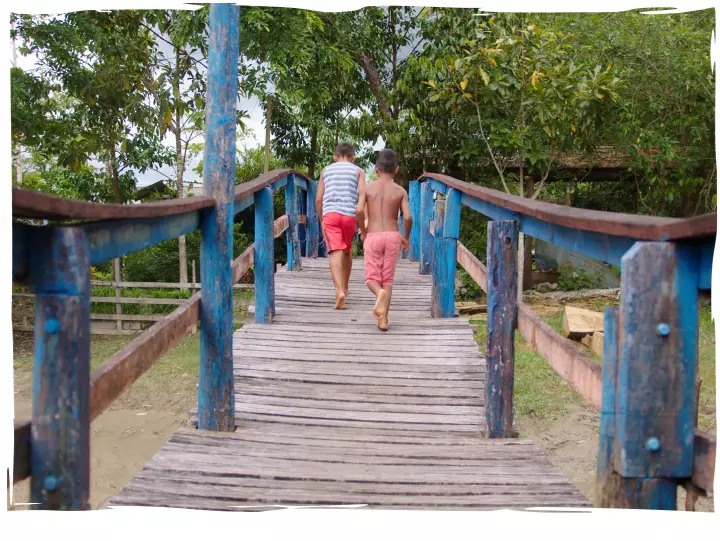
Credits: Amora Produções
Protagonism of communities and income generation
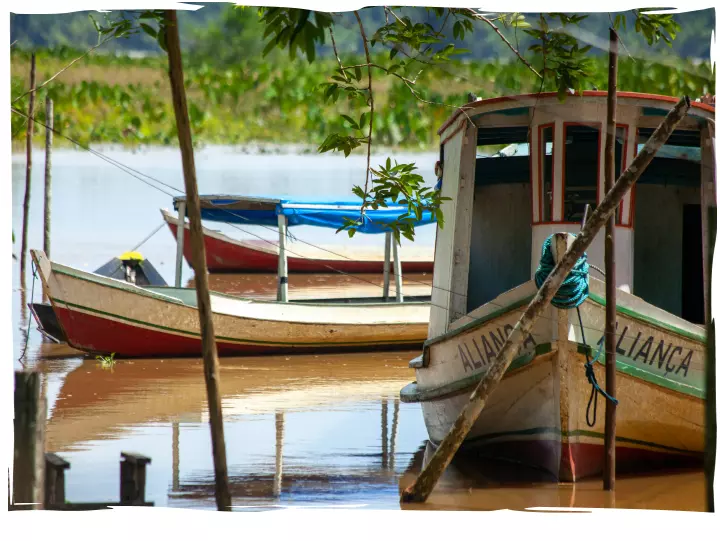
Credits: Amora Produções
Promoting the Bioeconomy means generating income and improving the quality of life of small and medium-sized producers, family farmers, traditional peoples and communities, through the promotion and structuring of value chains and productive systems of foraging and sociobiodiversity based on the sustainable economic use of natural resources and the promotion of renewable energy sources.
Consumers can adopt small practices that help them buy in a more sustainable way. Always research, look for labels and for the possibility of tracing products from their origins - those who work sustainably want to tell their story to everyone! Think about commitment: better value chains are built one day at a time and achieve results in the long term - don't expect perfection from processes which are still under construction, be part of them!
Good examples in bioeconomy
Origins Brazil Seal
Origins Brazil® is a network that promotes sustainable businesses in the Amazon in priority conservation areas, with guarantee of origin, transparency, traceability of the value chain and promotion of ethical trade.
Taste of the Amazon
Environmental conservation and income generation for local communities. The collective brand "GOSTO DA AMAZÔNIA" is born from this harmonious combination, with the strategy of promoting the joint marketing of wild managed pirarucu. The goal is to develop the main values practiced by the institutions involved in this process: the preservation of nature, fair and transparent trade and sustainable local and social economic development
National Seal of Family Farming
The Seal identifies the origin and provides the characteristics of family farming products, with the purpose of strengthening the social and productive identities of the various segments of family farming before consumers and the general public. To enable the traceability of the origin of the products, the Seal is identified with a specific image, a QR code and a serial number.
Project Bioeconomy and Value Chains
The Bioeconomy and Value Chains project supports the sustainable use and economic valorization of biodiversity, creating incentives for forest preservation and strengthening strategic elements of the sustainable and inclusive bioeconomy in the Amazon. It contributes to improved climate and biodiversity protection and supports the establishment of the foundations for socially, ecologically and economically sustainable development in Brazil.
The project is developed within the framework of the German-Brazilian Cooperation for Sustainable Development, through a partnership between the Ministry of Agriculture, Livestock and Supply (MAPA) and the Deutsche Gesellschaft für Internationale Zusammenarbeit (GIZ) GmbH, with support from the German Federal Ministry for Economic Cooperation and Development (BMZ) and will be implemented until December 2025.
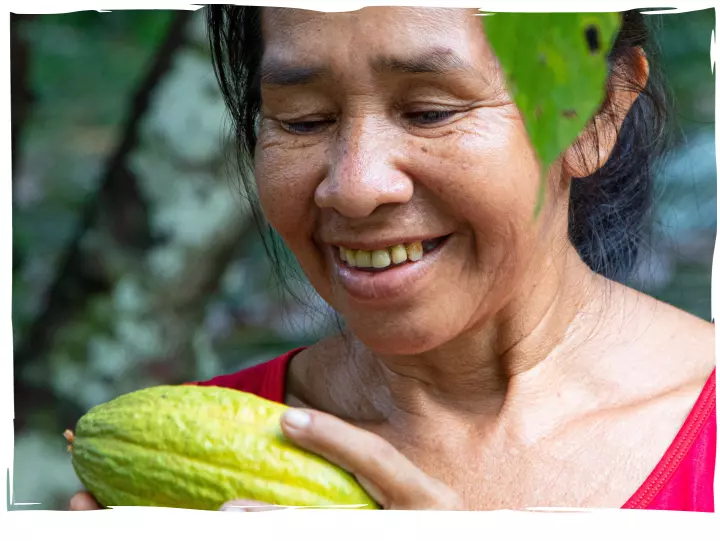
Credits: Vanessa Eyng
To learn more and work in partnership, send an e-mail to: bioeconomia@giz.de


